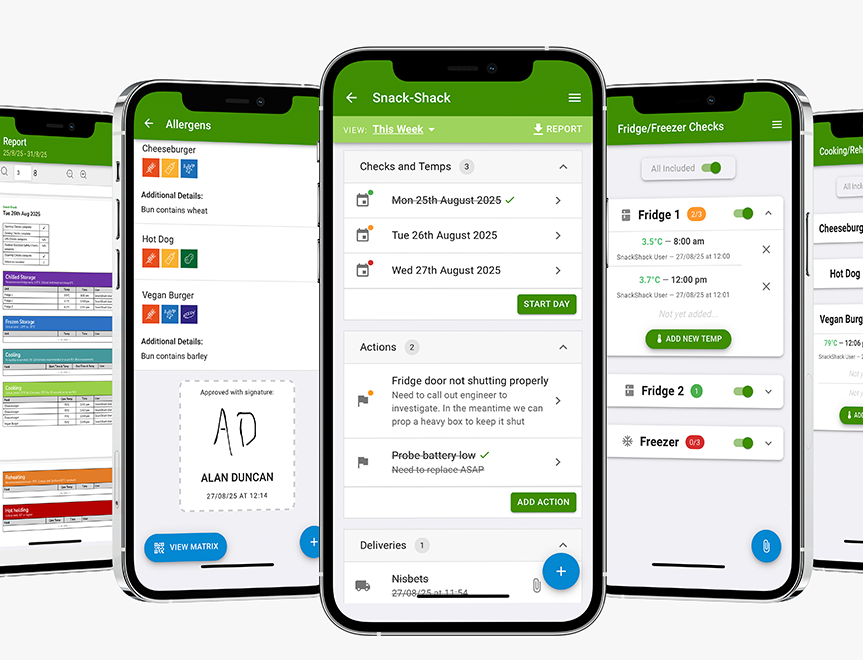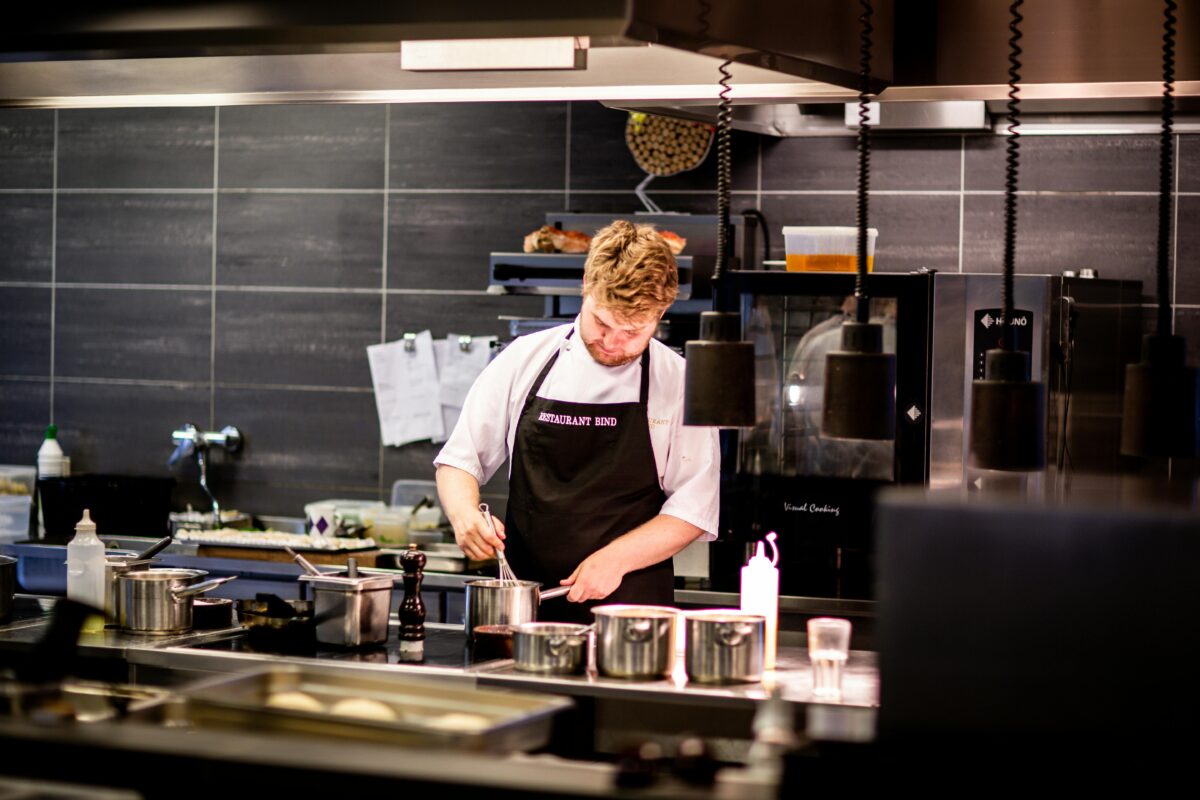The hospitality industry has been through some major changes lately, and if you’re working in a restaurant right now, you’ve probably noticed the landscape shifting. The industry that we all love – with its energy, creativity, and the satisfaction of feeding people – is evolving in ways that are creating exciting new opportunities.
Restaurant work has always been demanding, and that’s made us tough, adaptable, and incredibly skilled. But those same skills that make you brilliant in a restaurant kitchen are exactly what can make you successful as a freelance chef. It’s not about abandoning the industry we love; it’s about exploring a new way to thrive within it.
The Perfect Storm Creating Opportunities
The restaurant industry is adapting right now, and that’s creating opportunities we haven’t seen before. Rising costs and changing customer expectations are pushing restaurant owners to think differently about staffing. Many are discovering that bringing in skilled freelancers for specific events or busy periods can be a smart solution that works for everyone.
Meanwhile, people are getting tired of the same old chain restaurant experience. They want something special, something personal. They’re throwing dinner parties, hosting intimate events, and looking for chefs who can create magic in their own kitchens. That’s where you come in.
The gig economy isn’t just for Uber drivers anymore. It’s everywhere, and people are finally realising that freelance work isn’t just a “side hustle” – it’s a legitimate career path that often pays better than traditional employment.
What Is a Freelance Chef?
A freelance chef is taking all those skills you’ve developed in restaurants and applying them as an independent professional. Instead of being tied to one restaurant’s menu and schedule, you’re bringing your expertise to different environments and clients.
You might cook for a tech CEO’s board meeting on Monday, cater a wedding on Saturday, run a pop-up restaurant on Sunday, and teach cooking classes throughout the week. The variety is incredible, and it builds on everything you’ve already learned in restaurant work.
The best part? You’re still doing what you love – creating amazing food and memorable experiences – but you’re doing it on your own terms.
Why Going Freelance Could Be Your Best Move
The Money Actually Works
Freelance chefs often earn significantly more than their restaurant counterparts – sometimes 50-100% more. When you’re charging £50-120 per hour (realistic rates for skilled professionals), you’re being compensated fairly for your years of experience and culinary knowledge.
Plus, you’re diversifying your income streams. If one client cancels, you’ve got others. If the catering business slows down, you’ve got private dining. It’s like having multiple revenue sources instead of depending on one wage packet.
Creative Freedom Returns
Remember why you got into cooking in the first place? As a freelance chef, you get to rediscover that creativity. Want to experiment with molecular gastronomy? Go for it. Obsessed with farm-to-table cuisine? Build your whole brand around it.
Every client is a new canvas, every event is a chance to try something different. You’re not limited by corporate menus or food cost percentages – you’re free to create.
Work-Life Balance That Actually Exists
This might be the biggest game-changer. As a freelance chef, you control your schedule. Want to take Tuesdays off? Done. Need to skip evening events for a month? Your choice. You decide when you work, how much you work, and which clients you want to work with.
Getting Started: Your Action Plan
Step 1: Build Your Foundation
Be honest about your skills and figure out what you’re best at. Maybe you’re a grill master, or you have a knack for elegant plating, or you’re the comfort food expert. Whatever it is, that’s your starting point.
Step 2: Handle the Business Basics
Get your business license, liability insurance, and make sure you’re up to date on certifications. Consider setting up an LLC – it protects your personal assets and gives you tax advantages.
Step 3: Create Your Brand
Start with a professional Instagram account and post pictures of your best dishes. Get a basic website that includes your story, specialties, and how people can book you. Invest in good food photography – people eat with their eyes first.
Step 4: Find Your First Clients
Start with people you know. Tell friends, family, and former colleagues that you’re available for hire. Check out platforms like Bark or specialised chef services like Yhangry. Network at food events, farmers markets, and industry meetups.
Essential Tools for Success
You’ll need quality knives, basic cookware that travels well, and reliable transportation. For technology, start simple: a calendar app for bookings, invoicing software, and expense tracking for taxes.
Join online communities of freelance chefs and consider professional associations for networking opportunities. The connections you make can be worth more than any marketing budget.
The Real Challenges (And How to Handle Them)
Income can be unpredictable, especially starting out. Build an emergency fund of 3-6 months of expenses. You’ll handle all aspects of the business, not just cooking – marketing, accounting, client communication. Some love this variety, others find it overwhelming.
Working alone can be lonely if you’re used to restaurant kitchen energy. Consider partnering with other freelancers for larger events or maintaining some part-time restaurant connections.
The Future Is Bright
The demand for personalised dining experiences continues to grow. Technology is making it easier to connect with clients and manage your business. Many freelance chefs are expanding into content creation, online cooking classes, and food consulting.
People are increasingly valuing experiences over things, and personalized dining experiences are exactly what freelance chefs provide best.
Your Next Move
You don’t need to quit your restaurant job tomorrow. Start small – take on weekend gigs whilst you’re still employed. Build your confidence, client base, and savings. When you’re ready, make the leap.
The restaurant industry’s evolution doesn’t have to leave you behind. Sometimes the best response to change is to create your own path. You have skills that people want and are willing to pay good money for.
The freelance chef market is growing, and there’s room for talented professionals who are ready to bet on themselves. The kitchen of opportunity is wide open – are you ready to step in?
Start where you are, use what you have, and take that first step. Your freelance chef journey could begin with your very next client.






 Featured Training
Featured Training
OUR MEMBERSHIP
We're here to help make your catering business a success. Whether that be starting up or getting on top of your compliance and marketing. We're here to help you succeed.
Want our latest content?
Subscribe to our mailing list and get weekly insights, resources and articles for free
Get the emails